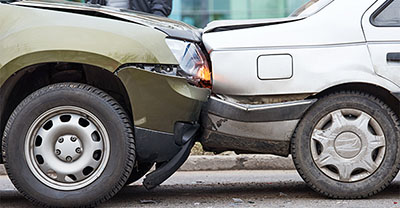What is rental reimbursement coverage?


0 min. read
Rental reimbursement is an optional coverage you can add to your auto or motorcycle insurance policy. It provides reimbursement—up to your covered limits—for the cost of renting a replacement vehicle while your insured car or bike is inoperable due to a covered incident.
At Dairyland®—a brand of the Sentry Insurance Group—we provide both auto rental reimbursement coverage and motorcycle rental reimbursement coverage.
How does rental reimbursement work?
Putting your rental reimbursement coverage into action is simple. Here's what to expect if you need to file a rental reimbursement claim after an accident:
If your vehicle is determined to be undriveable due to a covered loss, you’ll move on to the next step.
Your insurance company will authorize a rental period length based on the claim details, anticipated repair timeline, and your coverage limits.
You’ll rent a comparable vehicle from a licensed agency.
You’ll pay for the rental upfront when picking it up.
When your car or bike is out of the shop, simply return the rental and let your agent know. If the repairs are scheduled to take longer than the rental period you were authorized for, make sure to work with your insurance company ahead of time for an authorized extension.
Your insurer will reimburse your validated, authorized rental expenses directly to you, normally via check.
You’ll submit the rental receipts to your insurer for reimbursement (up to your limits).
Policies vary, so check details with your insurance provider. For example, some insurers authorize billing directly from the rental company, so you don’t have to pay out of pocket.
What does car insurance rental reimbursement cover?
It covers rental costs associated with any covered loss that leaves your car undriveable, and/or while your vehicle is being repaired.

Get a free Dairyland® insurance quote.
What doesn’t rental reimbursement cover?
While valuable, rental reimbursement coverage does have some limitations:
Reimbursement coverage stops once your vehicle is repaired and drivable.
Most insurers set per-day and total-claim maximum reimbursement limits.
Upgrades to luxury vehicles above the size/class of your damaged vehicle are generally excluded.
Mileage limits for your rental may apply. Overage charges generally aren’t considered reimbursable.
Your insurers won’t reimburse rental costs related to non-covered losses.
Typically, your insurer will only pay for rentals when you’ve gained pre-approval from them first.
Why is rental reimbursement coverage valuable?
Depending on the specifics of your insurance policy, rental reimbursement coverage can:
Help you save on costly rental fees: Renting a vehicle can quickly become expensive these days, especially for lengthy repair periods. With this coverage, your insurance provider can help with your rental costs.
Cover several incident types: Depending on your policy details, your coverage can apply to a range of damaging incidents, such as an accident, weather damage, theft, or vandalism.
Pay for rental taxes and surcharges: Most rental reimbursement coverages reimburse the base rate plus applicable taxes, airport fees, underage renter charges, and other mandatory add-ons, up to your coverage limits.
Provide coverage for family members: Many policies extend reimbursement coverage to spouses, domestic partners, and children if they need a rental vehicle due to your vehicle being repaired.
Apply to rentals nationwide: Coverage generally applies no matter where the incident occurs within the U.S.
Getting the most from your rental reimbursement coverage
Purchasing rental reimbursement coverage
Compare rental reimbursement costs when shopping for insurance. Getting the most coverage at a price that fits your budget is important.
Ask about insurance discounts like multi-line, safe driver, anti-theft device, and new car replacement credits to offset the cost of adding rental reimbursement.
Using rental reimbursement after an accident
Review your policy details thoroughly so you understand exactly what is covered and the limits.
Ask your insurer what their recommended rental agencies are and if any offer direct billing to simplify payment.
Rent a vehicle of the same class and size as your own. Luxury upgrades likely won't be reimbursed.
Don't extend rentals past what’s reasonably needed for repairs, as insurers won't pay for excessive rental days.
Keep all rental receipts, documentation, claim numbers, and other paperwork.
Rental reimbursement frequently asked questions (FAQs)
No, rental reimbursement is an add-on coverage you must select and pay extra for. Standard cheap car insurance and motorcycle insurance policies don’t automatically include rental reimbursement.
Yes, there are total coverage limits (for example, $500 maximum) and daily limits (for example, $30/day). Reimbursement ends once your car is repaired or you reach your established limits.
You’ll be responsible for any rental costs that exceed your policy's daily or total claim limit. For example, if your limit is $30/day and the rental is $50/day, you’d have to cover the $20/day difference.
If your vehicle repair extends beyond the initially approved rental period, contact your insurer immediately. They may extend the rental period if the delay is justifiable and within your coverage limits. Make sure you receive advance authorization for extending the rental period.
Dairyland rental reimbursement coverage
Has an accident left you without transportation? Our claims experts can handle everything from setting up your rental, approving claim periods, and processing reimbursement quickly and efficiently.
If you already have a Dairyland insurance policy and want to add rental reimbursement coverage, talk to your agent today or call us at 800-334-0090.
The general information in this blog is for informational or entertainment purposes only. View our blog disclaimer.
*Data accuracy is subject to this article's publication date.










